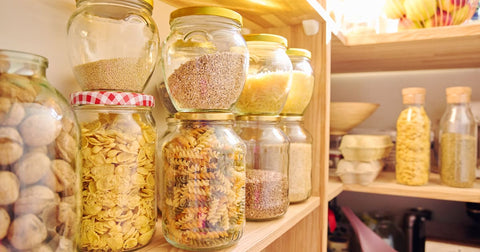Gluten sensitivity – an increasingly common complaint with symptoms ranging from digestive distress to fatigue, headaches, and more. But could factors beyond the gluten itself be making it worse? The answer is a resounding YES!

What is Gluten Sensitivity?
Let's recap:
- Gluten: A protein found in wheat, rye, barley, and sometimes oats.
- Gluten Sensitivity (Non-Celiac): You experience negative reactions to gluten, but do not have Celiac disease (an autoimmune condition).
- Spectrum of Reactions: Sensitivity exists on a spectrum from mild to quite severe, and symptoms can go beyond just gut troubles.
Environmental Impacts: The Hidden Players
Your body's reaction to gluten isn't determined by gluten alone. Here's where your environment comes into play:
-
Gut Microbiome

- Trillions of bacteria reside in your gut, influencing digestion, immunity, and overall health. An unhealthy gut microbiome can make you more prone to inflammation and worsen gluten reactions. Diet, stress, antibiotics, and other factors can disrupt your gut bacteria balance.
-
Exposure to Toxins
- Pesticides, herbicides, heavy metals... they're in our food, air, and water. These toxins ramp up inflammation in your body, potentially making gluten reactions even worse. Environmental toxins can damage your gut lining, contributing to a "leaky gut" where irritants like gluten are more likely to leak through.
-
Stress Factor
- Chronic stress wreaks havoc on digestion and your immune system. Stress can make your gut more reactive to trigger foods, including gluten. Gluten sensitivity itself can lead to more stress... and the cycle continues. Find out what the role of stress is in triggering gluten sensitivity.
-
Medications
- Antibiotics, while lifesavers, can deplete your healthy gut bacteria, setting the stage for increased sensitivities. Also, certain medications like NSAIDs (ibuprofen, naproxen) can damage the gut lining and exacerbate food reactions.
-
Lifestyle Habits
- Sleep Deprivation: Lack of sleep disrupts your gut bacteria and impairs immune function, potentially worsening gluten sensitivity.
- Alcohol Intake: Alcohol irritates the gut and can worsen inflammation, increasing reactivity to triggers.
- Inactivity: Regular physical activity promotes gut health and reduces stress levels – key for managing sensitivity.
Food Intolerance Testing: Beyond Gluten
While environmental factors play a major role in gluten sensitivity, don't overlook potential hidden food intolerances. A food intolerance test kit can help identify your personal triggers, allowing for a more targeted diet overhaul.
The Takeaway

Addressing gluten sensitivity isn't JUST about eliminating gluten. Optimizing these environmental factors is key for lasting relief:
- Gut Health is King: Support a healthy microbiome with a balanced, whole-foods diet.
- Minimize Toxins: Choose organic foods when possible, reduce processed foods.
- Stress Less: Find healthy stress-busters—yoga, meditation, time in nature.
Important Note: If you suspect gluten issues, consult a doctor to rule out Celiac Disease before experimenting with a gluten-free diet.
Frequently Asked Questions:
1.Can things other than gluten make my reactions worse?
Absolutely! From gut bacteria imbalances to toxins and stress, your environment plays a huge role in how your body responds to gluten.
2. What do you mean by a healthy gut microbiome?
Your gut is home to trillions of bacteria, both good and bad. An imbalance of these bacteria can increase inflammation and worsen gluten sensitivity.
3. How can I improve my gut health?
Focus on whole foods, probiotics (found in yogurt, fermented foods), prebiotic fiber (think fruits, veggies), and stress management.
4. If I avoid gluten, does gut health still matter?
Yes! A healthy gut improves overall well-being and can lessen your body's reactivity to other potential food triggers beyond just gluten.
5. How do environmental toxins impact gluten reactions?
Toxins in our food or environment increase inflammation throughout your body, including your gut, making you more likely to react negatively to gluten.
6. Could a food intolerance test help my gluten issues?
Yes! Other food intolerances can co-exist with gluten sensitivity, further stressing your gut. Identifying those hidden triggers is key for total digestive peace.


.png?v=1737390083)
.png?v=1737187409)


